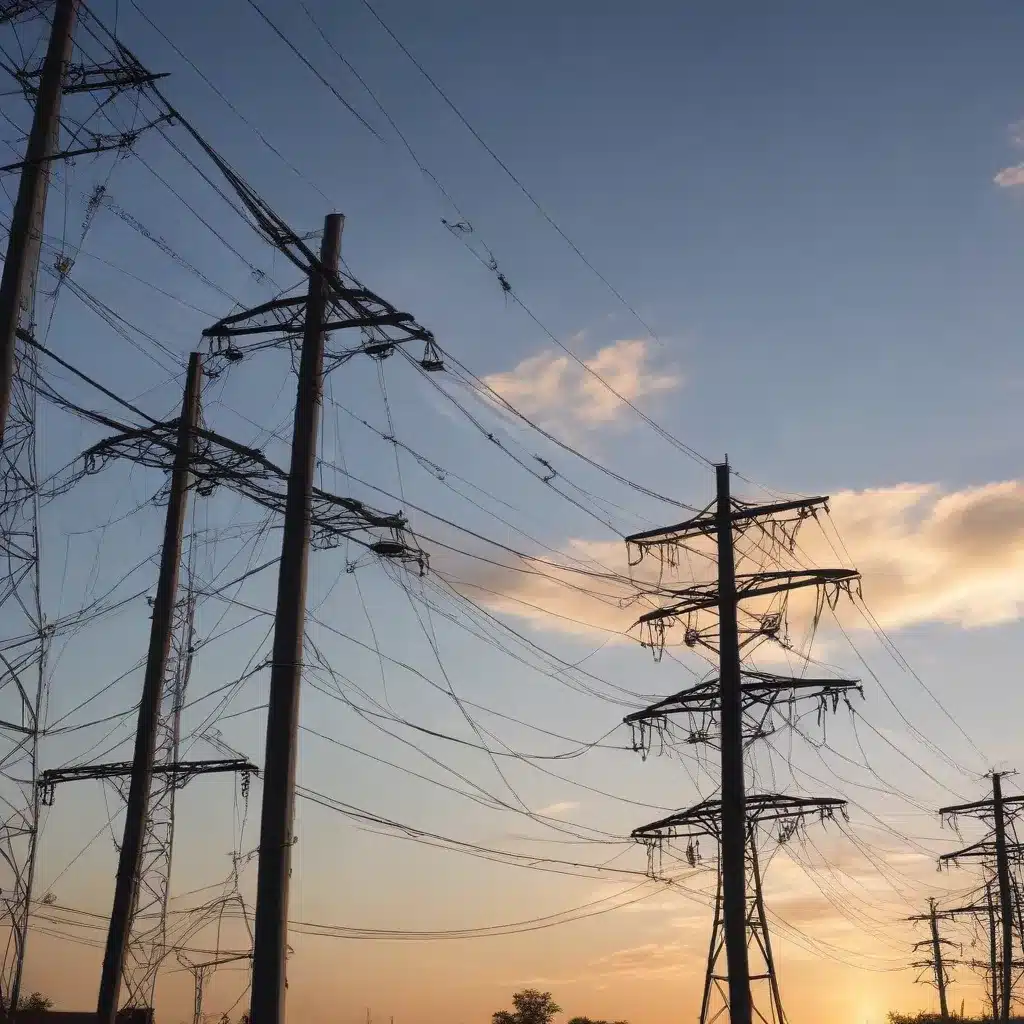
Harnessing the Power of Decentralization: Innovations in Energy Systems
Europe’s energy landscape is undergoing a profound transformation, driven by the urgency to combat climate change and the promise of emerging renewable energy technologies. At the heart of this shift lies the concept of decentralized energy systems, which are reshaping the way we generate, distribute, and consume electricity. This article explores the innovations propelling this decentralized energy revolution, highlighting the potential to harness the power of renewable sources, energy storage, and smart grid technologies to create a more resilient, sustainable, and equitable energy future.
Renewable Energy Technologies: Harnessing the Wind and Sun
The rapid deployment of wind power and solar photovoltaic (PV) systems has been a driving force behind Europe’s transition to cleaner energy sources. Onshore and offshore wind farms are proliferating across the continent, harnessing the abundant and consistent winds that sweep through coastal regions and inland areas. Meanwhile, the plummeting costs of solar PV panels and the increasing efficiency of the technology have made solar power a viable option even in regions with moderate sunlight levels.
The decentralized nature of these renewable energy technologies is a game-changer. Wind turbines and solar panels can be installed at the community, commercial, or residential level, allowing for localized energy generation and consumption. This shift away from centralized, fossil-fuel-based power plants empowers individuals, businesses, and communities to take control of their energy destiny, reducing their carbon footprint and contributing to the broader goal of net-zero emissions.
Energy Storage: The Missing Link
The integration of energy storage solutions, such as battery energy storage systems (BESS) and pumped hydro storage, has been crucial in unlocking the full potential of renewable energy sources. These storage technologies enable the capture and retention of excess energy generated by wind and solar, allowing it to be deployed when demand is high or when renewable resources are scarce.
By smoothing out the intermittency inherent in wind and solar power, energy storage systems enhance the grid flexibility and stability of decentralized energy systems. This integration ensures a more reliable and consistent supply of electricity, reducing the need for conventional backup power sources and paving the way for higher penetration of renewable energy into the grid.
Moreover, energy storage solutions empower consumers and businesses to optimize their self-consumption of renewable energy, reducing their reliance on grid-supplied electricity and potentially lowering their energy bills. This shift towards decentralized, self-sufficient energy models is transforming the landscape, fostering energy independence and resilience at the local level.
Blockchain and Energy: Decentralized Transactions and Smart Contracts
The rise of blockchain technology has ushered in a new era of decentralization in the energy sector. Decentralized energy trading platforms, enabled by blockchain, allow for peer-to-peer transactions between renewable energy producers and consumers, bypassing traditional utility-centric models.
These blockchain-powered microgrid energy marketplaces facilitate the exchange of locally generated renewable energy, empowering communities to share and trade electricity in a secure and transparent manner. Smart contracts, a core feature of blockchain, automate energy billing, metering, and demand-side management, further streamlining the operations of decentralized energy systems.
The integration of blockchain technology with renewable energy and energy storage systems creates a seamless, decentralized ecosystem where energy producers, consumers, and grid operators can collaborate efficiently. This level of interconnectivity and data-driven optimization enhances the overall resilience and flexibility of the energy grid, paving the way for a more sustainable and equitable energy future.
Grid Modernization: Enabling Decentralized Integration
Accompanying the rise of decentralized energy systems is the modernization of the electricity grid, driven by the deployment of advanced metering infrastructure (AMI) and distributed generation integration technologies.
AMI, which includes smart meters and communication networks, enables real-time monitoring, remote control, and demand-side management of energy consumption. This enhanced visibility and control empower grid operators to manage the integration of decentralized renewable energy sources more effectively, ensuring grid stability and optimizing energy flows.
The seamless integration of distributed generation, such as rooftop solar and community-scale wind farms, is another crucial aspect of grid modernization. Innovative grid interconnection solutions and advanced voltage and frequency regulation algorithms ensure that these decentralized energy sources can be efficiently integrated into the existing grid infrastructure, unlocking their full potential to contribute to the energy transition.
Societal Impact: Empowering Communities and Addressing Sustainability
The shift towards decentralized energy systems has far-reaching societal implications, from improving energy access and equity to driving environmental sustainability.
In underserved or remote communities, decentralized renewable energy solutions, often coupled with energy storage, are playing a pivotal role in rural electrification and alleviating energy poverty. By bringing clean, reliable, and affordable electricity to these areas, decentralized energy systems are transforming lives and fostering economic development.
At the environmental level, the widespread adoption of renewable energy technologies and the integration of decentralized energy systems are contributing to significant emissions reductions and supporting Europe’s ambitious climate targets. By reducing reliance on fossil fuels, decentralized energy systems are helping to mitigate the impact of climate change and pave the way for a more sustainable future.
Harnessing the Power of Decentralization
The European Future Energy Forum (https://www.europeanfutureenergyforum.com) is at the forefront of these transformative changes, providing a platform for industry leaders, policymakers, and innovators to collaborate and shape the future of energy. By harnessing the power of decentralization, Europe is poised to unlock a new era of energy innovation, resilience, and sustainability – a future where renewable energy, smart technologies, and empowered communities converge to create a cleaner, more equitable, and more resilient energy landscape.







